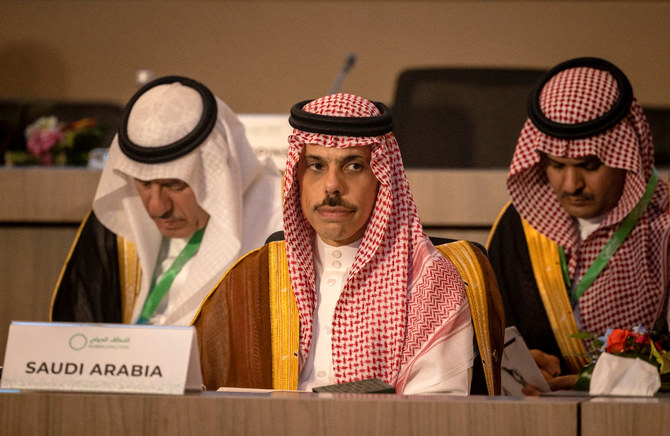NEW YORK: At a time of heightened global polarization, Saudi Foreign Minister Prince Faisal bin Farhan on Friday called for more cooperation, saying: “No one wants to be drawn into blocs.”
His comments were made at New York’s MENA Forum, hosted by the Middle East Institute and Think Research and Advisory, on the sidelines of the 77th UN General Assembly.
“We need to discuss how we can strengthen our cooperation, how we can work closer together, how we can build an alignment that can insulate against this polarization, because none of us want to be drawn into blocs or into making choices,” he said.
“We want to talk about investment. We want to talk about innovation. We want to talk about progress. And we hope that our international partners will focus on that as well,” he added.
“We (Saudi Arabia) have made a decision to focus on a path of sustainable development and prosperity for our people, and we don’t want that to be derailed by politics.”
The Kingdom recently brokered a prisoner swap between Russia and Ukraine that saw almost 300 people, including 10 foreigners, returning to their homelands.
The Saudi Foreign Ministry said the move was based on the support of Crown Prince Mohammed bin Salman, and in continuation of his efforts to adopt humanitarian initiatives toward the Russia-Ukraine crisis.
When asked about the Saudi stand on Lebanon, the foreign minister said: “The Kingdom still cares about Lebanon, but the people of Lebanon have to decide what path they want to embark on, as clearly the current path isn’t working.”
Another key issue he touched on was food security in the region. “Food security is very much part of the conversation today,” he said. “Coming from a water-poor country, we’ve been dealing with these issues for many years.”
NEOM, Saudi Arabia’s smart and sustainable city, announced last week that it would build a water-desalination plant by 2024 to combat water scarcity.




















